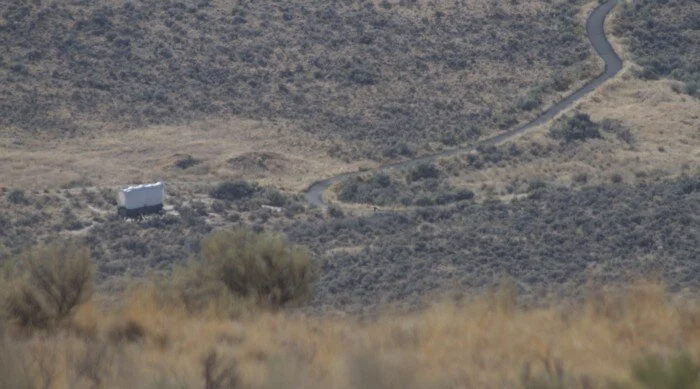Revive the Archive: Kendall Snell’s “I Died of Typhoid Fever: Lamenting the Disappearance of The Oregon Trail” (2006)
Revive the Archive is a weekly series that brings new eyes to previously published works. This week we look at “I Died of Typhoid Fever: Lamenting the Disappearance of The Oregon Trail” by Kendall Snell. This piece was originally published in volume 12 of The York Review.
It’s the music that really brings me back; those three notes of computer-generated sadness that indicate a member of your wagon party has died of dysentery, influenza, typhoid fever or a myriad of other circa 1843 disease. Those three notes, less sophisticated than the average cell phone ring tone, are the notes of my childhood.
Oh, how I miss The Oregon Trail. It has been over a decade since my elementary school social studies class visited the computer lab, formed our trail parties and headed west to grab our computer-simulated slice of American pie. I loved the computer lab days as a child. What better way to grasp the importance of the Oregon Trail’s unique place in American history than to sit down at the computer screen and simulate our own disease-ridden, misfortune-laden journey into the west? A whole generation of children got in touch with our inner pioneers through what we would now consider a crude computer game.
The first crucial step of the game was to form your wagon party: a group of five family members, friends or potential love interests that would serve as your companions during your grueling journey along the trail. (And if your little sister died of dysentery along the way, don’t worry, you could always bring her back to life in the next day’s game.) My wagon party usually consisted of my mom and dad, big sister, best friend, Dana, and my then-boyfriend, T.L. Occasionally, I’d choose Jonathon Taylor Thomas. Don’t recognize the name? Just ask any female in her early twenties.) On-screen, we’d visit the supply store together, choose our food, clothing, and sturdy oxen and head out for a better life under the beige fabric of our covered wagon.
Along the way, we faced many challenges. Sometimes, a thief would break in the wagon at night and steal clothing, food and supplies. Other times, the oxen would get lost and we’d lose a few days of our journey. Occasionally, we’d have to go hunting in order to get more food for our party. (Although I never shot a buffalo, as an Indian in real life, I understood the importance of that animal to my sister tribes. Even as a ten-year-old, I had my principles. Okay, so maybe I shot one once or twice along the way, but only if we were starving.)
Perhaps the most important lesson of The Oregon Trail was in the area of decision making. Should I purchase two wheel axles at the start of the game and carry the extra weight, or should we risk breaking an axle along the way? Should we attempt to ford the river, or pay five dollars to take the ferry across? Should we consume generous portions and waste the food or cut down meager portions and risk illness? These were the issues that weighed heavily on my young heart.
But alas, at some point in my education, teachers began to utilize books, websites and research papers for history lessons. The Oregon Trail was left behind, along with my JTT posters and scrunchies. Alone, I was forced to ponder bigger questions, like “what should I do this weekend,” “what should I major in” and “how does my hair look today?”
However, you never know when something from the past will sneak up and reintroduce itself to you. Recently, some friends and I found ourselves locked into a long conversation, lamenting the mysterious disappearance of our beloved and once-familiar friend. Oh, where have you gone, dear Oregon Trail? None of these questions and issues that I now face in life seem as compelling as the decision whether to ford the river, which brought about my brother’s untimely demise every time.

